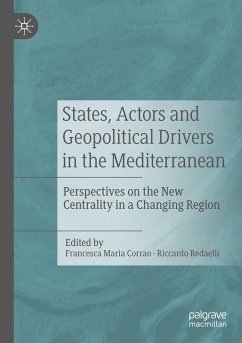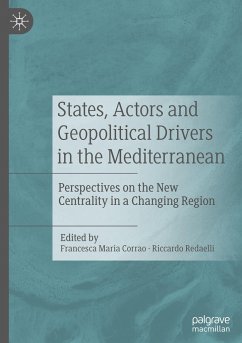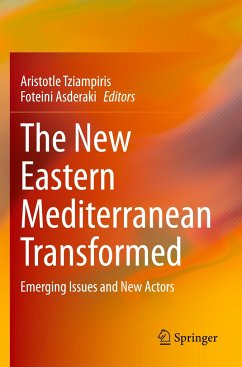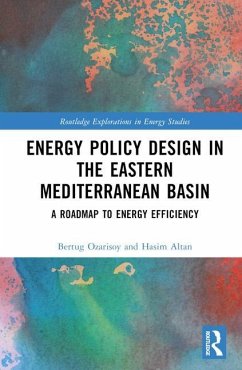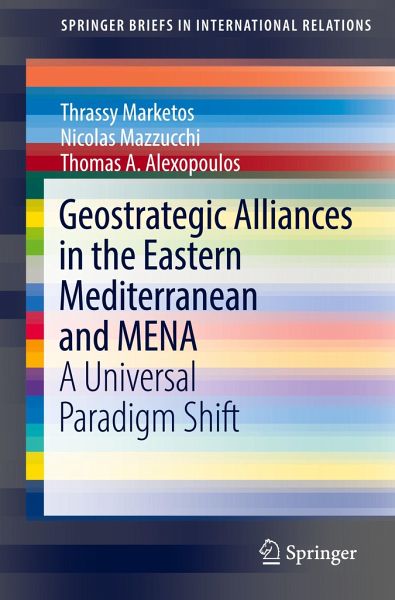
Geostrategic Alliances in the Eastern Mediterranean and MENA
A Universal Paradigm Shift

PAYBACK Punkte
0 °P sammeln!
This book examines the geostrategic alliances in the Eastern Mediterranean and MENA regions. It analyzes how these alliances transcend stereotyped political and cultural prototypes throughout western Eurasia as the outcome of shifting regional power balances. The authors explain how this development has its foundation mostly in the United States' 'Pivot to Asia' policy, resulting in a lower priority ranking of the Middle East for Washington, but also in the emergence of China's economic incursion on the wider region.The book looks into and presents different reasons for this paradigm shift: Fi...
This book examines the geostrategic alliances in the Eastern Mediterranean and MENA regions. It analyzes how these alliances transcend stereotyped political and cultural prototypes throughout western Eurasia as the outcome of shifting regional power balances. The authors explain how this development has its foundation mostly in the United States' 'Pivot to Asia' policy, resulting in a lower priority ranking of the Middle East for Washington, but also in the emergence of China's economic incursion on the wider region.
The book looks into and presents different reasons for this paradigm shift: First and foremost, the historical ambitions and conflicting assertions of sovereignty in the region. Then, competition over control of hydrocarbons reserves and pipeline politics, civil wars, and political chaos in certain littoral states. US retrenchment and Russia's naval base expansion in Syria, as well as Turkish expansion in Libya, NATO allies divisions and, not to reckon with, waves of migration and refugees. Yet some internal and external factors could lead to some changes in these trends, including the need to engage in energy transitions due to climate change consequences in the region.
Therefore, this book is a must-read for scholars, students, policy-makers, and practitioners interested in a better understanding of the political development in the Eastern Mediterranean and MENA regions, as well as of International Relations in general.
The book looks into and presents different reasons for this paradigm shift: First and foremost, the historical ambitions and conflicting assertions of sovereignty in the region. Then, competition over control of hydrocarbons reserves and pipeline politics, civil wars, and political chaos in certain littoral states. US retrenchment and Russia's naval base expansion in Syria, as well as Turkish expansion in Libya, NATO allies divisions and, not to reckon with, waves of migration and refugees. Yet some internal and external factors could lead to some changes in these trends, including the need to engage in energy transitions due to climate change consequences in the region.
Therefore, this book is a must-read for scholars, students, policy-makers, and practitioners interested in a better understanding of the political development in the Eastern Mediterranean and MENA regions, as well as of International Relations in general.









